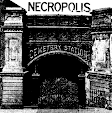ON THE TWELFTH NIGHT OF HALLOWEEN … I watched Wait Until Dark (1967), directed by Terence Young and based on a play Frederick Knott. Audrey Hepburn plays a blind woman who is conned, gaslit, and finally savagely attacked by three men in pursuit of a heroin-stuffed doll they believe she is in possession of. The woman has only recently lost her sight in an accident, so she is still learning how to navigate the world on her own, which makes her overly trusting of strangers.
Thus, throughout the first two acts, the film concerns the psychological horror of a person buying into a false reality created by a conspiracy of new voices around her. We know the people behind those voices are already responsible for another woman’s murder, but she believes they are the voices of well-wishers and civic authorities. In the last act, there is a more directly horrific stand-off between the woman and the true psychopath of the three, played by a surprisingly sinister young Alan Arkin. At one point, she has smashed out the lightbulbs, while the psychopath has doused everything in gasoline, and they start taunting one another by briefly illuminating the pitch blackness with lit matches. Hepburn is of course great (she was nominated for an Oscar for this performance)—creating a loveable character whose strength, uncertainty, pride, and growing terror are clearly legible all at once on her face.
This is definitely a Hitchcockian thriller, given its simple but ingenious premise that cranks up tension notch by notch in every scene. And that’s no fluke: Frederick Knott also wrote Dial M for Murder, one of Hitchcock’s signature films. Wait Until Dark bears a lot of similarities with Dial M for Murder, including the action being predominantly restricted to one city apartment, heavy reliance on the telephone as a plot device, and lots of dramatic irony arising from the characters’ various campaigns of subterfuge. So undoubtedly Warner Bros. was looking to reproduce Hitchcock’s success with this picture. For once, they absolutely nailed it, and in fact through the talent of Hepburn and Arkin, they produced something distinctive well beyond other Hitchcock clones.


No comments:
Post a Comment